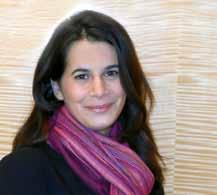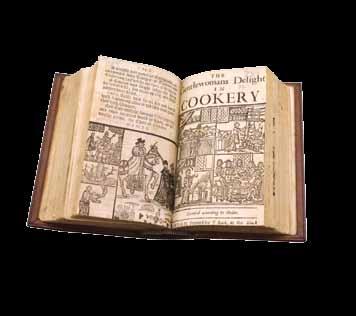
3 minute read
Fellows’ News
Dr Cecilia Brassett
Dr Brassett and the University Office of External Affairs and Communications have produced a short film of her dissection-based anatomy teaching programme to conclude the celebrations for the 300th anniversary of the establishment of the Anatomical School in 1716. The film features two Magdalene firstyear medics, and filming took place in College. The film can be viewed on YouTube: ‘Body of work: the silent teacher’. Dr Brassett has also been involved in lectures and hands-on activities for the Cambridge Science Festival and hosted the Institute of Anatomical Sciences Spring Scientific Meeting at Cripps Court in April.
Advertisement
Professor Tony Cockerill
Professor Tony Cockerill, editor of the Economics Faculty’s annual Alumni Newsletter, Cambridge Economics, is delighted that this year’s ‘Distinguished Alumnus’ main feature will be a profile of the Rt. Hon. Greg Clark MP, Secretary of State for Business, Energy and Industrial Strategy, who read Economics at Magdalene 1986–89. The newsletter will be published in September. Tony was also invited to return to the Economics Department at George Washington University, Washington D.C. as a Distinguished Guest Scholar for the first part of the Fall Semester. He worked on comparisons of industrial performance between the United States and the European Union and, inevitably, was asked to offer several seminars on Brexit.
Professor Saul Dubow
Professor Saul Dubow joined us as a Professorial Fellow in Lent term. Saul is the newly-appointed Smuts Professor of Commonwealth History. He is resident in College. Born in Cape Town, Saul took his BA at the University of Cape Town and his doctorate at Oxford. After a British Academy Post-Doctoral Fellowship at the Institute of Commonwealth Studies, London, he taught at the University of Sussex before moving to Queen Mary, University of London, in 2012 as Professor of African History. In his area of research expertise, nineteenthand twentieth-century South Africa, he has made major contributions to the understanding of the systems of racial segregation and apartheid through linked studies of its ideological, intellectual, cultural and institutional aspects. His interests include transnational and world history and, in particular, the growing field of global intellectual history.
Professor Paul Dupree
Biochemist Professor Paul Dupree coauthored a paper with his father Professor Ray Dupree unlocking the secrets of the strength in plants. The pair solved a long-standing mystery of how key sugars in cells bind to form strong robust plant walls in materials such as wood. Scientists were aware that the molecules – or ‘polymers’ – cellulose and xylan, found in plant cell walls played a key role in determining strength, but how remained a mystery until now. In a four-year research programme Professor Paul Dupree led a team looking at the behaviour of cellulose and xylan, discovering that cellulose induces xylan to untwist itself and straighten out, allowing it to attach itself to the cellulose molecule. Analysing such structures requires examination at the minutest scale as cellulose and xylan are 10,000 times narrower than the width of a human hair. The team turned to an imaging technique known as solid state nuclear magnetic resonance, work which was supervised by Professor Paul Dupree’s father and co-author Professor Ray Dupree at the University of Warwick’s SS-NMR laboratory. The discovery may help create stronger materials and buildings as tall as skyscrapers could be built using modified wood.
Dr Nathaniel Millar
At the end of last Term, we welcomed and admitted a new Teaching Bye- Fellow in Asian and Middle Easter Studies. Dr Nathaniel Millar is an Unestablished Lecturer in Classical Arabic in the Faculty of Asian and Middle Eastern Studies, having received his PhD from the University of Chicago in June 2016. Before that he worked and studied in Cairo and Alexandria from 2007–10. His current book project grows out of his dissertation, which deals with the only surviving medieval anthology of tribal Arabic poetry, by the poets of the Hudhayl tribe, who lived near Mecca at the time of Islam’s emergence. His next project revolves around a multi-volume twelfth-century anthology compiled by Saladin’s secretary, Imad al-Din al- Isfahani. He also has an MA (Indiana University) in English literature, with a focus on British Romanticism. In his spare time he enjoys hiking and historical fiction.
www.magd.cam.ac.uk










